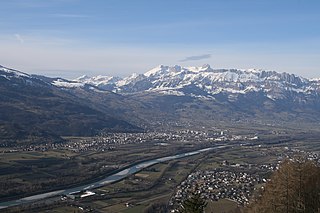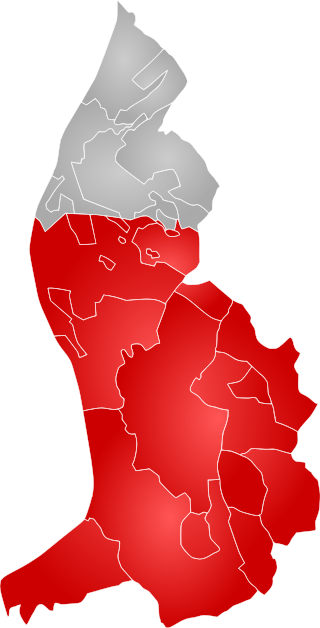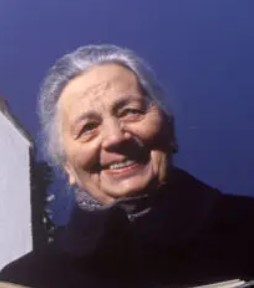
Liechtenstein, officially the Principality of Liechtenstein, is a doubly landlocked German-speaking microstate in the Central European Alps, between Austria in the east and north and Switzerland in the west and south. Liechtenstein is a semi-constitutional monarchy headed by the prince of Liechtenstein of the House of Liechtenstein, currently led by Hans-Adam II. It is Europe's fourth-smallest country, with an area of just over 160 square kilometres and a population of 40,023. It is the world's smallest country to border two countries, and is one of the few countries with no debt.

Political identity came to the territory now occupied by the Principality of Liechtenstein in 814, with the formation of the subcountry of Lower Rhætia. Liechtenstein's borders have remained unchanged since 1434, when the Rhine established the border between the Holy Roman Empire and the Swiss cantons.

Vaduz is the capital of Liechtenstein and also the seat of the national parliament. The village, which is located along the Rhine, has 5,696 residents. The most prominent landmark of Vaduz is Vaduz Castle, perched atop a steep hill overlooking the village. It is home to the reigning prince of Liechtenstein and the Liechtenstein princely family. The village's distinctive architecture is also displayed in landmarks such as the Cathedral of St. Florin, Government House, Village Hall, the National Art Gallery, as well as the National Museum. Although Vaduz is the best-known village in the principality internationally, it is not the largest; neighbouring Schaan has a larger population.

Rheinpark Stadion in Vaduz is the national stadium of Liechtenstein. It plays host to home matches of the Liechtenstein national football team, and is also the home of football club FC Vaduz. It lies on the banks of the river Rhine, just metres from the border with Switzerland.

Fussball Club Vaduz is a professional football club from Vaduz, Liechtenstein that plays in the Swiss Challenge League. The club plays at the national Rheinpark Stadion, which has a capacity of 5,873 when all are seated but has additional standing places in the North and South ends of the ground, giving a total stadium capacity of 7,838.

Schaan is the largest municipality of Liechtenstein by population. It is located to the north of Vaduz, the capital, in the central part of the country. As of 2019 it has a population of 6,039, making it the most populous administrative district in Liechtenstein. Representing an important traffic hub and industrial location of the country, Schaan covers an area of 26.92 km2 (10.39 sq mi), including mountains and forest. It is a municipality within the electoral district of Oberland in the Principality of Liechtenstein. Schaan contains four enclaves: Brunnenegg, Gritsch, Guschg, and Plankner Neugrütt.

The Liechtenstein Football Association (LFV) is the governing body of football in Liechtenstein. It was established on 28 April 1934, and became affiliated to UEFA on 22 May 1974. The association organizes the Liechtenstein national football team and the Liechtenstein Football Cup. Because Liechtenstein has fewer than 8 active teams, it is the only UEFA member without its own national league. This means the Liechtensteiner teams play in the Swiss Football League system. The LFV is based in Schaan.

Sophie, Hereditary Princess of Liechtenstein, Countess of Rietberg was born a member of the House of Wittelsbach, with the courtesy title of Duchess in Bavaria, and second in line for the Jacobite succession. She is married to Alois, Hereditary Prince and Regent of Liechtenstein.

Prince Constantin of Liechtenstein, known professionally as Constantin Liechtenstein, was a member of the Princely House of Liechtenstein, and a businessman. He was the third son of Prince Hans-Adam II and his wife, Countess Marie Kinsky of Wchinitz and Tettau. He was the chief executive officer of the LGT Group from 2020 to 2023.

Vaduz Castle is the palace and official residence of the Prince of Liechtenstein. The castle gave its name to the town of Vaduz, the capital of Liechtenstein, which it overlooks from an adjacent hilltop.

Martin Stocklasa is a Liechtenstein football manager and former player who played as a defender. He was most recently the manager of Liechtenstein club FC Vaduz, who play in the Swiss Challenge League, the second tier of Swiss football.

Franz Burgmeier is a Liechtenstein former professional footballer, who played as a midfielder. Born in Triesen, Burgmeier was a burgeoning footballer and keen skier, until he gave up the latter sport at 16 following a serious injury. Having been a youth player for Triesen, he started his professional career with Vaduz. Burgmeier won several Liechtensteiner Cups with Vaduz, who were promoted to the Swiss Challenge League in 2001, and played in the UEFA Cup. After two unsuccessful attempts to win promotion to the Swiss Super League, Burgmeier left for Aarau in 2005. He spent only one season with Aarau before a move to the previous season's runners-up Basel in 2006. His two seasons with Basel were broken up by a loan spell with Thun, before he moved to England with Darlington in August 2008, where he played for one year.

Vaduz Cathedral, or Cathedral of St. Florin, is a neo-Gothic church in Vaduz, Liechtenstein, and the centre of the Archdiocese of Vaduz. Originally a parish church, it has held the status of cathedral since 1997.

Alois, Hereditary Prince of Liechtenstein is the eldest son of Hans-Adam II, Prince of Liechtenstein, and Countess Marie Kinsky von Wchinitz und Tettau, and the heir apparent to the throne of Liechtenstein. Alois has been regent of the country since 15 August 2004, while his father remains the official head of state.

Oberland, meaning "upper land", is one of the two electoral districts of Liechtenstein. It corresponds to the historic County of Vaduz, and the administrative seat is the city of Vaduz, the national capital. It has 15 seats in the Landtag.

In the early 1930s, association football in Liechtenstein was quickly growing in popularity. In 1931, FC Ruggell was founded, whilst in 1932, FC Vaduz, FC Balzers, FC Triesen and FC Schaan were founded. Despite the growing interest of football in Liechtenstein, there was no FA, and hence no league for Liechtenstein, meaning that Liechtensteiner clubs had to play in different leagues,. Due to this, there was no definitive way to decide the champions of the country, and therefore, a group of Liechtensteiner clubs came together to form the Liechtenstein FA.

The education system in Liechtenstein is similar to the Swiss education system.

The County of Vaduz was a historic state of the Holy Roman Empire, now located in the Principality of Liechtenstein. Its capital was the town of Vaduz.

Ida Ospelt-Amann was a Liechtensteiner poet who wrote in the Alemannic dialect that is spoken in the Vaduz region. She was considered the most important of her country's dialect poets. Her works deal primarily with rural life, as well as with her home town of Vaduz, and its change over time.





















